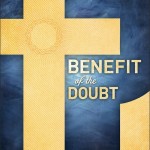We run our website the way we wished the whole internet worked: we provide high quality original content with no ads. We are funded solely by your direct support. Please consider supporting this project.
The Lessons of Job
Breno Peck via Compfight
In his book Benefit of the Doubt, Greg argues that the lessons of the book of Job reassure us that God does not lie behind suffering, but he rather is a trustworthy friend who can handle our doubt and pain. If you’re in the midst of grief or suffering, we hope these words will bring you both comfort and courage.
This inspired epic poem doesn’t explain why some people suffer and others do not, but it offers a singularly profound insight into why we ultimately can’t know the reason why. It’s not that God acts arbitrarily, as Job thought. Nor is it that people get what they deserve, as Job’s friends thought. Rather, good and evil and everything else unfold with apparent randomness because the causes that factor into what comes to pass flow out of a cosmos that is unfathomably vast and complex; a cosmos that includes a heavenly realm that sometimes influences events, as it did Job, but that we are not privy to, and a cosmos that is perpetually under siege by powerful hostile cosmic forces, represented by Leviathan and Behemoth.
More importantly, for our purposes, this inspired poetic drama also provides us with a poignant illustration of what it means to have an “Israelite” faith that honors God. It’s not a faith that is centered on right beliefs and pious language. And it’s certainly not a faith that focuses on feeling secure and worthwhile by convincing ourselves that we’re right. It’s rather a faith that is grounded in authenticity and that is therefore unwilling to sweep questions, doubts, and complaints under a pious rug to avoid the pain of cognitive dissonance. It’s a faith that is not afraid of going to the mat with God. (89-90)
Category: General
Tags: Benefit of the Doubt, Doubt, Pain, Problem of Evil, Suffering, The Book of Job, Theodicy
Related Reading

Finger-Pointing and the Impulse to Judge
To no one’s surprise, yet to the sadness of many of us, several Christian spokespeople, including James Dobson, Mike Huckabee and Bryan Fischer, are blaming the shootings in Newtown, Conn, on abortion and gay marriage. This is sadly reminiscent of Jerry Falwell’s hurtful response to 9/11 when he divined that “the pagans,” “abortionists,” “feminists,” “gays,” “lesbians,”…

Rachel Held Evans Interviews Greg on Benefit of the Doubt
We shared an interview that Frank Viola did with Greg yesterday, and we’re thrilled to share an interview that Rachel Held Evans posted today. Rachel is very familiar with the resistance and criticism that comes when dearly held beliefs are challenged. We feel like she is a kindred spirit in this regard. We hope you’ll…

Publisher’s Weekly Review of Benefit of the Doubt
Publisher’s Weekly gave us a positive review and highly recommends Greg’s book. You can find the review here. You can order a copy of Benefit of the Doubt on Amazon.

A Visit to Auschwitz
Ever since I first learned of the full horror of the Holocaust when I was a freshman at the University of Minnesota I have had a kind of obsessive fascination with it. I’ve studied every aspect of Hitler and the Third Reich and about the philosophy that led to their “Final Solution.” In fact, for…

Podcast: Is It God Withdrawing OR Is It a Scheme of Satan?
Sometimes evil is attributed to God withdrawing. Sometimes it is attributed to a scheme of Satan. We are called to respond to each differently. So, must we be able to discern which is the case in any given situation? http://traffic.libsyn.com/askgregboyd/Episode_0189.mp3

How Job’s Suffering Points to Jesus
As I introduced in my previous post, when we read the book of Job we must refute the common assumption that Yahweh is a Machiavellian deity who is controlling all that transpires in his creation, including Job’s suffering. At the same time, we must ask why the prologue (1:11-2, 2:3) and perhaps the final chapter…

